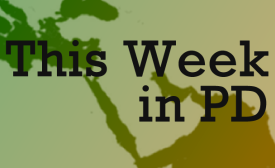social media
In today's times, China has adopted soft power in a different sense. It is concerned to couch its rise to global power in non-threatening tones. Not wanting, like Germany and Japan in the late 19th and early 20th centuries, to threaten the existing world order and provoke a world war, it wishes to present its rise as harmonious.
The extremist jihadist group leading the insurgency against the Iraqi government is using apps, social media and even a feature-length movie to intimidate enemies, recruit new followers and spread its message. And its rivals – including foreign governments – are struggling to keep up.
Dozens of young Australians are showing their support for fighters in Syria and Iraq by liking images, creating online groups and adopting the black-and-white flag used by a terrorist group on their social media pages.
A video purporting to show British jihadists urging Western Muslims to join them in Iraq has been released on social media. The footage - which has not been independently verified - apparently features Britons and Australians fighting for the Islamic State in Iraq and Syria (ISIS).

As Al Qaeda-inspired ISIS continues its violent march towards Baghdad, the group's social media outreach is being closely examined.
It's a truth of warfare in the digital era: Bullets and bombs often are augmented by status updates and tweets. The bloody conflict taking place in Iraq is no different.
The disappearance of three Israeli teens in the West Bank last week is being taken as a call to action uniting many disparate elements of the American Jewish community.
Once the Iraqi situation calms down, Kurdish leaders should embark on a public diplomacy campaign that stresses Kurdistan’s political and economic stability and its value as a partner to the West in sorting out the regional mess.







